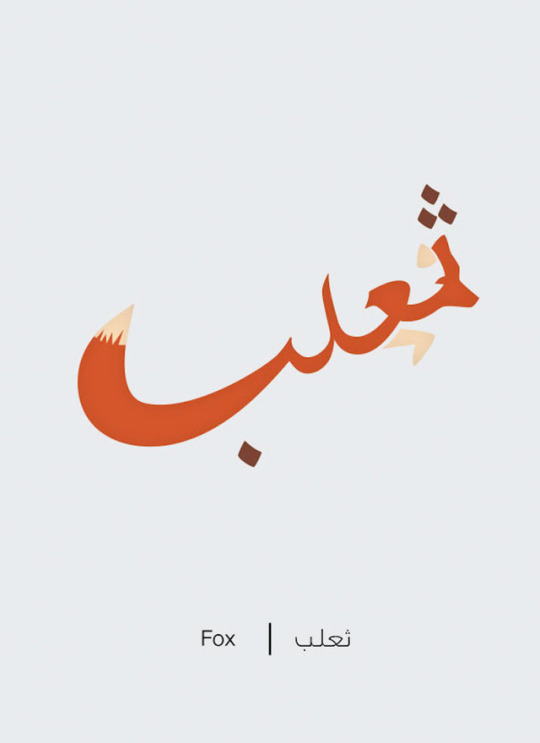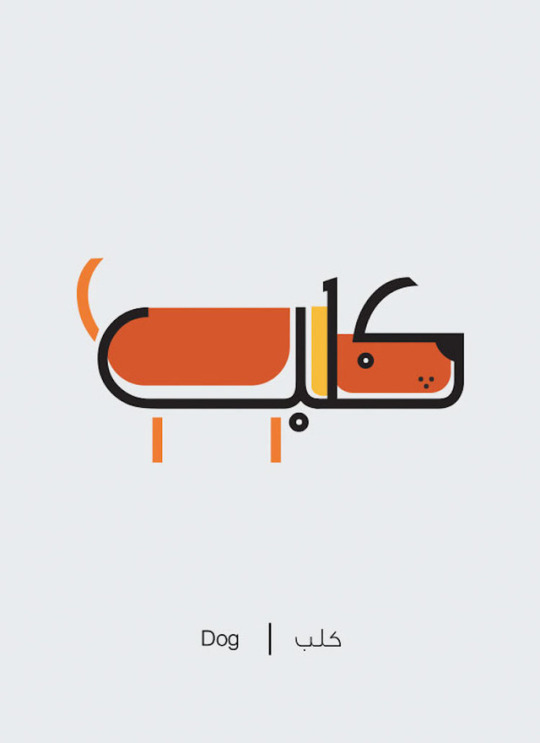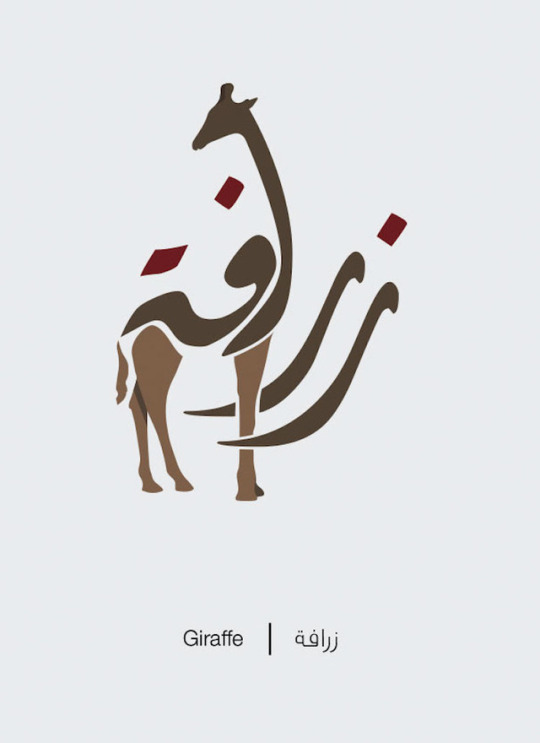Photo








Reblog this if you are a langblr studying Arabic!
96 notes
·
View notes
Note
Hello! Do you have any tips for what to do when you've fallen behind? I have a very hard time concentrating, and not knowing what the teacher is talking about just makes it worse. I really wanna get back on track, but I have no idea where to start. Thank you!!
You and me both anon! Here’s a few tips on how to catch up (and keep ontop of class content)
Work backwards
Assume the following. Your class is steamrolling ahead - they’ve started topic 6 this week and you haven’t even finished your notes for topic 1. What do you do?
Start straight from topic 6. Drop the rest; start with the topic your class is currently covering. Don’t start from topic 1 and then ‘expect’ to catch up to topic 6 within the week. That way, you’ll have all your notes for topic 6 completed, and can slowly chip away at the previous topics.
If your subject is cumulative, skim over the key points of the previous topics (definitions etc) before doing this. Once you’e learnt the advanced application of the principle, it’ll be much easier to learn all the preliminary stuff (and faster too!) Its easier to fill in the blanks because you gain context.
BUT WHY?!? Basically, its the theory of diminishing returns and all that jazz. A little about a lot goes a long way; a lot about a little does not. When it comes to exam time, you’ll be able to answer a larger number of questions - statistically that holds you in better stead (the first 50% of marks for a question are the easiest to achieve) c.f. answering one question very well and bombing three.
Cover the basics! Target Spotting!
Cover the BASICS: If you can answer the core questions and issues of your course, you’ll be able to pass. Granted, getting an A lies in the nuance of application, examples etc. But you can’t get there if you don’t know how to apply the foundational principles - its like building a house on sand.
Look at your syllabus - what are the key themes or topics which you have to cover?
Look at review questions/ sheets at the end of a textbook chapter (if any). What are the key concepts, definitions and examples given?
Answer these. Then, move the fuck on. When it comes to exam revision, you can go back and fill in examples and add in all the ‘details’.
Affordable Losses (if you’re really under the time crunch)
Make sure your study correlates with your assessment outcomes.
See which areas are ‘affordable losses’. List all the issues within the chapter. Use the revision page/your course syllabus/ what points your teacher emphasised in class to identify core questions and ‘secondary aka not so important’ questions. Those core issues are the ones you should be able to easily answer. Don’t bother about the secondary ones - they’re affordable losses.
Remember, its all about prioritisation. So for example….
If its not going to be covered in your most immediate assessment - fuck it, cover the topics which are
If the area you’re struggling through only makes up 5% of the course, and some other topic is worth 15%? fuck it, move to that latter topic.
If its only a secondary example or tangential/ related issue to the core issue covered in the chapter? fuck it, I know the basics, that’ll give me 50% of the marks for that question. Fuck the rest. Move on.
Pre Reading
If you get handouts or slides etc, flick through them before class. Note or highlight any new phrases/ concepts/ words you don’t understand on one side of your page.
That way, you’ll anticipate the areas of class you’ll need to pay specific attention to. As the teacher covers the content, you’ll be able to fill in your quick glossary
Change up your study techniques! aka Mini Revision/ Revision on Steroids
After each class, list three things key points (words) from class. That way, when you go to write your notes, you’ll have some sort of context to begin with.
When it comes to revising, don’t bother about writing it down or making it neat. Try speaking your notes aloud, reciting them to a mirror etc. Draw a mindmap. Colour code similar topics. Screw making fancy revision notes and notecards. You don’t have the time. Making it neater and copying it out doesn’t necessarily mean you’ll absorb the information faster.
Bear Grylls It. Basically, this means attempting a practice exam with what you have - no fancy notes, no fancy revision cards - just the notes you’ve got as of the current moment. After your attempt, note what questions you couldn’t answer and begin your revision from there. You learn a lot more through application than passive copy-rewrite-recite.
Lots of study tips start with “don’t leave things till the last minute”. But you know what? Shit Happens. Life Happens. We’re only human. So swear, curse, bemoan the time you’ve use procrastinating, load up on coffee, boot up your computer. Then start. In the end, being behind doesn’t mean you’ll fail. You’ll fail if you don’t try at all.
As someone who is about to embark on a tortuous revision session (read: three days, half a semester BRING IT ON, BRING ON ALL THE COFFEE), I wish you all the luck.
I’ll see you on the other side!
2K notes
·
View notes
Text
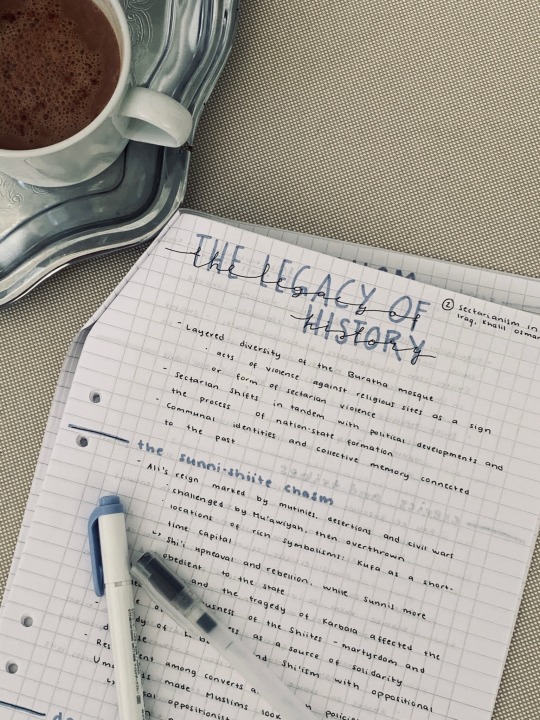
10.6.2020
I really can’t drink hot tea during the summer, so I drink cold O’boy instead! I have been quite busy with Middle Eastern studies, and I have fallen behind on Arabic :( However, I really enjoy studying these courses, even though they are literature-based and I tend to take way too much notes! I try not to copy the whole book, but I tend to do so anyway.
It has been hard to maintain a study routine during and after the pandemic, especially now when I only self-study Arabic. Do you have similar problems?
(Notes from Sectarianism In Iraq by Khalil Osman)
#arabic#arabic language#arabic langblr#middle east#middle eastern studies#studyblr#studyspo#studymotivation#study motivation#study#studying#notes#notestagram#study notes
28 notes
·
View notes
Text
- 📚✨
عليك أن تعلم، أن كمال المعرفة هو التطبيق، و أن كمال الرغبات هو البدء و الفعل!
“you have to know that. Knowing is not enough; we must apply. Being willing is not enough; we must do.”
43 notes
·
View notes
Text
Does anyone know what a catholic chapel veil/mantilla is called in Arabic? I remember my mom showing me my great grandma’s and I was trying to to find it... and I was wondering if there was a word for it? This is specifically in like, a Maronite and Greek Orthodox context if that helps. Thanks!
4 notes
·
View notes
Text

Should you study Modern Standard Arabic (MSA) or a dialect? When I started learning Arabic, I was recommended to study strictly Modern Standard Arabic and stay away from the dialects. Even though the advice is really good, it also turned out problematic. So, I would like to go through some points on the matter, and maybe give some advice on how you can make the best decision for your learning process!
What is Modern Standard Arabic?
MSA is the standard, preserved form of Arabic, which has developed from Classical Arabic. In Arabic language, MSA is called العربية الفصحى (al-ʻArabīyah al-Fuṣḥā), which refers to the adjective فصيح (faṣīḥ), meaning eloquent. For native Arabs, “fusha” usually refers to both Modern Standard Arabic and Classical Arabic, and they are categorized as فصحى العصر (Fuṣḥā al-ʻAṣr, modern fusha) and فصحى التراث (Fuṣḥā al-Turāth, historical or “heritage” fusha).
MSA is not a mother tongue for Arabs - usually the language they learn from their parents is the dialect of their country or area. Instead, MSA is used in professional, educational and journalistic purposes. During the past few decades, it has also become more common in social media, when Arabs increasingly communicate over national, communal and linguistic boundaries. MSA is not only a language of the educated and intellect (مثقفون, muthaqqafun) anymore.
Benefits of the dialects
As I have mentioned, MSA is nowadays more widely spoken and understood among Arabs, but it is not as natural as dialects, and some have trouble using it even though they fully can understand it (it is mainly a issue of orientating oneself to MSA, since it is extremely rare in informal conversation). Speaking with natives is definitely easier in their own dialects, and natives are always happy to help you with their own language :)
Another point to mention is that most of the culture is produced in dialects - movies, songs, TV series, Youtube channels are all usually using their respective dialects. There are series (especially cartoons) and songs in MSA, but sometimes it may be tricky to find them - the media and popular culture is much richer in the native dialects, and you will never suffer from lack of resources. But then, navigating within the materials can also cause trouble, since the used dialect is not always clearly indicated. It is easier to find material in preferred dialect, when you already have basic knowledge about them.
Benefits of MSA
Even though the dialects are very lively languages, MSA could be described as the heart of the language (at least when it comes to me!). Its precise and complicated grammatical system has been preserved for centuries. It may not be always the easiest to use, and not even easiest to study, but the grammatical structures are extremely regular, deliberately set up, and interesting. The dialects are not as much organized and regular, since they have been developing through centuries along native speakers.
If you are into Arabic literature, history or journalism, or you are planning to use Arabic for professional purposes, you definitely should study Modern Standard Arabic. However, I would recommend everyone to start with it, since it is the basis for all the dialects, and allows you to understand the language itself better. Also, it is possible to pick up any dialect after learning MSA, and it may be easier to distinguish the “fusha aspect” from the dialect. Usually, it is also easier to find good learning resources and materials for MSA directed towards language learners. The dialects tend be more informal and/or vary between communities and regions, and some of them may lack variety of teaching materials.
Studying MSA and a dialect at the same time
While it may sound a great idea to get the best of both aspects of Arabic language, I would personally recommend getting the basics of MSA first. I added Iraqi Arabic almost in the beginning, since I felt like I needed it to communicate with my spouse’s family. It was extremely useful in that sense, indeed, but it also added its own troubles into my MSA progress - it became harder to distinguish the features of the dialect, different grammatical structures and vocabulary. Informalities creeped into my MSA, and sometimes I got really confused.
It is not impossible to learn both at the same time, and if you have a dialect you are especially interested in, it is probably a good decision to add it in after studying some MSA and getting over the basics. But also, you will do well with MSA for some time, and many people start to learn dialect after they are already learned their MSA into conversational level. Starting both at the same time might be a little overwhelming, though, especially if you are not sure about the dialect you want to learn (but it is possible to learn multiple dialects at the same time, of course - it might just be quite confusing!).
Think about these questions
➊ What are your goals in Arabic language? Do you aim at using Arabic in your career or wish to speak more professionally? How about engaging in informal conversations with natives?
➋ Are you already interested in a dialect, or do you have friends from certain area? If you are uncertain about the dialect you’d like to study, it is a good idea to start with MSA and choose the dialect later, when you already have the basic information. However, if you already have a lot of Arab friends and you want to get to use the language immediately, you could think about starting with the dialect. They can probably help you navigate the learning resources, too!
➌ What kind of learner are you? If you are a grammar nerd like me and you love to study the basics thoroughly, you will probably love MSA. But someone who likes to engage more from the beginning, use the language immediately, listen to songs, speak with natives and watch movies, might benefit from the dialect more.
Also, I want to add that no matter which form of Arabic you choose, you will definitely succeed with just going for it and studying! My journey with Arabic wasn’t so straight-forward and I have had mixed feelings about dialects and MSA, but learning is never bad. And you must remember that many (or most?) Arabic learners will learn multiple dialects over time - you can start with one and proceed then to the next one :) When it comes to beginners, however, it is the simplest to start with MSA or one dialect. The important part is to enjoy the language!
If you have experiences of choosing between MSA and dialects, please share your stories! The ways people have started learning Arabic are always so interesting to hear :)
#langblr#language#languages#new language#arabic#arabiclanguage#arabic language#studyblr#polyglot#study tips#learning tips#language learning#beginner's arabic#arabic for beginners#arabic langblr#langblog#studygram#studystudystudy#study motivator#studying#studyspo#language tumblr#language tips#اللغة العربية#اللهجات#العربية العامية#الفصحى
154 notes
·
View notes
Text
Playaling
Playaling: Watch Arabic Videos by Level/ Dialect
Welcome to Playaling, the first free online resource for learning Arabic through engaging real-world content and interactive captioning. With new clips and features being added all the time, we’re a dedicated team of language professionals making engaging real-world Arabic content available to teachers and students across the globe.
If you’re a student or teacher of Arabic like us, you’ve surely shared our frustration with the shortage of quality resources for learning Arabic, especially when it comes to colloquial.
This is where Playaling comes in. It makes authentic, real-world Arabic online content fun, accessible, and pedagogically useful.
I came across this website and think it will be very helpful to those also learning Arabic! It has several videos to choose from and has captions for them.
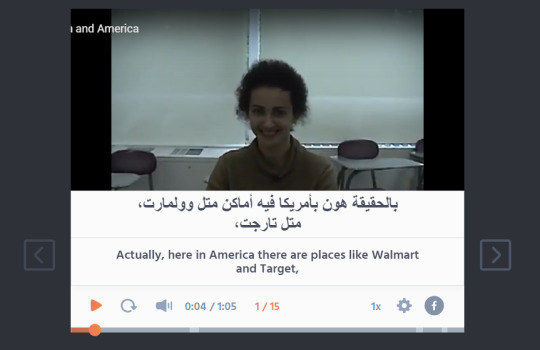
109 notes
·
View notes
Text
Looking for blogs to follow!
I guess after a long hiatus a lot of the blogs I have been following aren’t active anymore. I’m looking to follow studyblrs, langblrs, bookblrs, bullet journal lovers, and also other fun blogs!
Please reblog and tag some of your favs and help me revive my dash <3
39 notes
·
View notes
Text
Langblr Follow Train (June 2020)

Let’s start a langblr follow train to find new langblrs/lingblrs to follow and befriend! 🚂
1. Only langblrs (blogs about languages) and lingblrs (blogs about linguistics), please!
2. Reblog this post before 30.6.2020!
3. Follow some blogs that have reblogged this post!
4. Make new friends!
96 notes
·
View notes
Text
Languages 101: a language learning guide by a polyglot

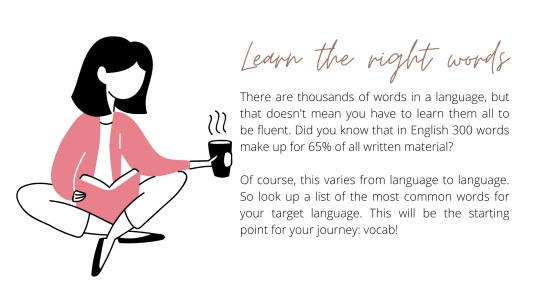
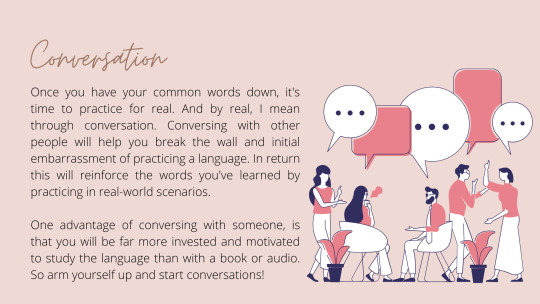
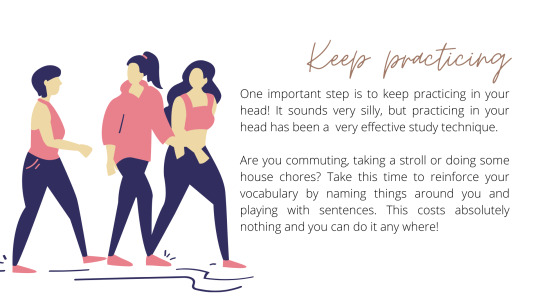
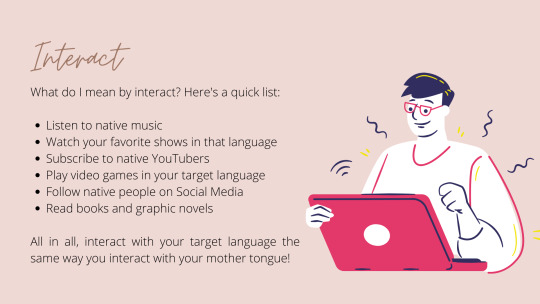

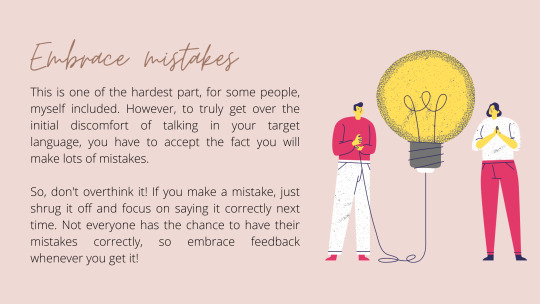
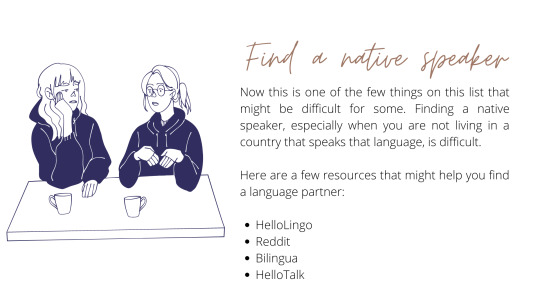
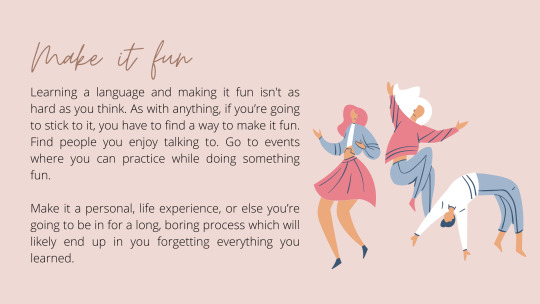

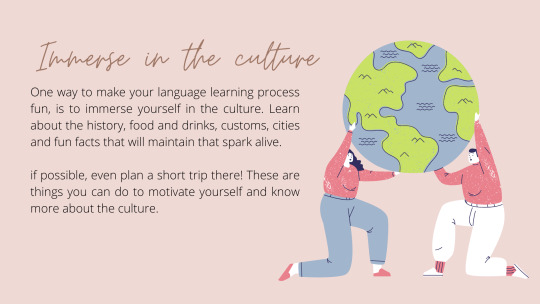
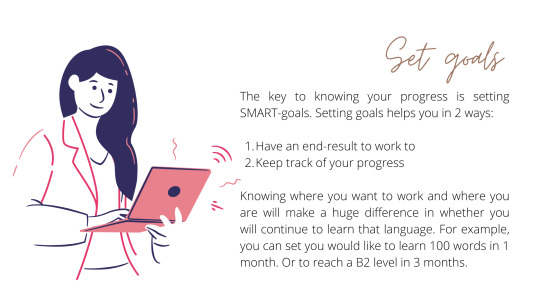
Hey, guys. Lala here! As polyglot who speaks 5 languages and learning more, I’ve been through my fair share of language learning experiences. Here, I wanted to share some tips with you guys that have helped me along my journey.
What are some language learning tips that have helped you guys? Share them with me! Do you have a question? Don’t be afraid to leave me an ask!
Read more of my content here:
5 tips on how to be productive when studying from home
My study routine for ultimate productivity
Minimalist student toolkit
Written by @lalavscollege
3K notes
·
View notes
Text
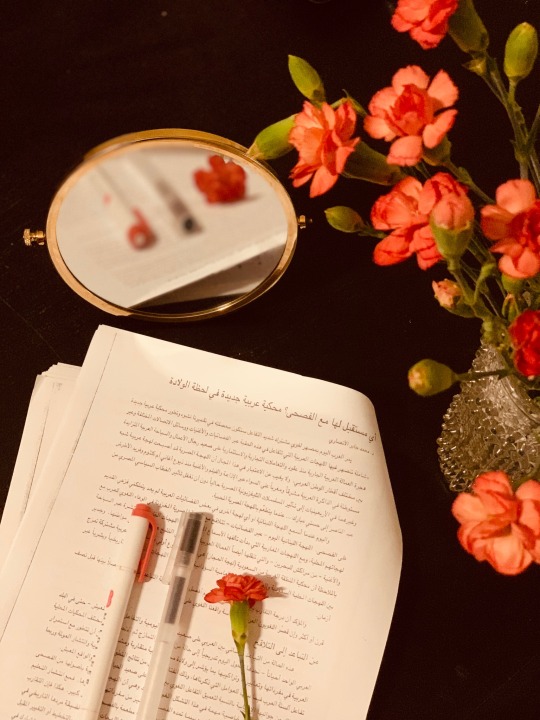
29.05.2020
Studying Arabic ❤️ I have currently couple of courses of Middle Eastern Studies, which I absolutely love, since we can focus on a country of our preference and I chose Iraq, naturally! But it also mean less time for Arabic language, since the readings are quite heavy :( How is your Arabic or other language studies going? I should focus so much more on speaking and writing, but I just love these small essays in Al-Kitaab.
Also, let’s face the truth: my study sessions never look this good, and it is okay! Messy cramming in the middle of complete chaos is normal, and most of my studying consists of that.
نص في الصورة من "الكتاب في تعلم العربية جزء ثاني"
#arabic#arabic language#langblr#studyblr#arab#notes#studying#studymotivation#اللغة العربية#لغات#عربي#أدب عربي#نصوص عربية#العراق#studyspace#aesthetic#arabiclangblr#arabiclanguage#studygram#study motivator#studystudystudy#studyspo
21 notes
·
View notes
Text
no one:
literally nobody:
Romanian, Persian, Albanian, Greek and Neapolitan: *calls oranges “Portugal”*
236 notes
·
View notes
Text

Even though the concept of the root (الجذر, al-jidhr) is quite complex and some argue that it is not necessary to learn it in the beginning, I found it extremely useful to learn right after starting my learning journey. It accelerated my learning process quite a lot, made memorizing new vocabulary easier and helped me to get to the core of Arabic language. The system may seem very complicated in the beginning and takes some time to get accustomed to, but I promise it is worth it! This post is made for absolute beginners to explain the concept in a surface level. You don’t have to have any previous experience or knowledge of Arabic language, and it is not necessary to know how to read yet to get some idea about the system. If you now stumble across this without even an intention to learn Arabic, you can start here.
You could describe the root as a family or group of words which share a similar meaning or are connected to each other in some way. The root consists of three (or sometimes four) letters, which usually create a basic meaning. From the root, it is possible to derive many different words and more complicated concepts, which relate to the other words. These relations are not always clear-cut or very simple, and it may require some linguistic or cultural explanation to understand the relations.
The three-letter root is put into a pattern (الوزن, al-wazn). These patterns usually affect the meaning of the root in a certain, defined way, and control the derivations of the root. Since the system is very hard to explain only by words, we need an example. The root د ر س (d-r-s) is related to studying, and the verb “to study” دَرَسَ (darasa, past tense) is the simplest derivation of the root. Usually the root is written in non-connected letters, since it doesn’t have any value by itself. In the picture below, I have coloured the root letters with pink. The pattern (وزن) is showing in black. You can see that even though the words themselves look very different, they form both nouns and verbs and there are many letters added, the meanings are very much related.

The patterns are usually represented with the root ف ع ل (f-‘a-l, to do). For example, the pattern of present tense third person masculine singular would be represented as يفعل (yaf’alu). This form of verb is the simplest present tense verb. By replacing ف ع ل with other root letters, you could get any root into present tense third person singular. For example, with our root د ر س, it would become يَدْرُسُ (the vowels, حركات vary in this pattern). The verbs are usually given in present or past tense third person masculine singular.
Other important term would be form (شكل, shakl), which represent the changes the patterns cause in the meaning of the roots. Patterns are categorized in forms. For example, the second form has a causative nature: the patterns of second form often cause the action of the first form verb. If the first form verb is “to study”, the second form verb would be “to cause one to study” – to teach. Because of the forms, the roots may have multiple “present tense 3rd person masculine singulars”, which vary on the meaning, and are considered separate verbs. Luckily, the changes of the meaning are easy to notice once you learn more about the forms and learn the characteristics of each form. It is good to know that the ten forms have sometimes more complicated natures and relations, and not every root can be put in every form or pattern.
I would love to discuss the changes which happen in the different forms, but since this is an introduction to the subject, I will leave it into another post. The goal of this post was to make new Arabic learners to pay more attention to the roots of the words and not to feel intimidated by the similar-sounding and same-looking words. By going deeper into the root system, it is possible to learn faster. I don’t mean that it is easier to memorize words, but understanding the grammatical logic and the intertwining relations between the patterns and forms just makes more sense. In addition to that, dictionaries are organized by the root, not by the word itself (luckily, this is not a big problem in the modern era of online dictionaries anymore, but the root system explains also sometimes strange translations on translation apps). Understanding the root system was quite hard for me in the beginning, but I’m glad that my Arabic teacher put me through it in the very beginning. That’s why I wish to do some more posts explaining the forms, patterns and roots more.
#arabic#arab#arabic language#arabiclanguage#arabic langblr#arabiclangblr#arabic grammar#studyblr#langblr#language#languages#language learning#اللغة العربية#لغات#عربي#linguistics#study tips#study motivator
85 notes
·
View notes
Text
Arabic langblrs & learners
Where are you guys on here? I need more Arabic focused langblrs and learners to follow and practice with. Reblog/like or message so I can follow!
19 notes
·
View notes
Text

My weak MSA dependent self trying to decipher what the news reporter is saying because his جs sound like g
12 notes
·
View notes
Text
Langblr introduction

Hi! I’m a new langblr, with a focus on Arabic language. However, I don’t know where this leads me, and probably this blog will be about other topics too :) I would love to follow more langblrs/studyblrs, especially those focusing on Arabic, but also other subjects! Please comment/repost/let me know about your tumblr!
b a s i c s
➊ I’m 19 years old, and you can call me Sisi!
➋ I’m an uni student majoring in theology and religious studies
➌ I am learning Modern Standard Arabic and Iraqi dialect
➍ My native language is Finnish, and I have studied many languages including Persian, Russian, Spanish, German and Koine Greek. Currently I am not focusing on any of those :(
➎ My other hobbies include crafts (knitting and crocheting), reading and hiking.
السلام عليكم!
هذه مدونتي الجديدة مخصص لدراسة اللغة العربية.
الأساسيات
① إسمي سيسي وعمري 19 سنة
② أدرس العلوم الدينية في الجامعة
③ أتعلم الفصحى واللهجة العراقية
④ لغتي الأم هي فنلندية، وأيضا كان أدرس كثير من اللغات: الفارسية، الروسية، الالمانية، الاسبانية واليونانية (كوينه). فلكن الان أركّز على اللغة العربية فقط
⑤ هواياتي الأخرى هي الحياكة والكروشيه والقراءة والتنزه.
#langblr#langlr intro#intro#arabic#arabic language#studyblr#new langblr#العربية#لغات#study#introduction#introducing myself#arab#grammar#vocabulary#new language
11 notes
·
View notes


